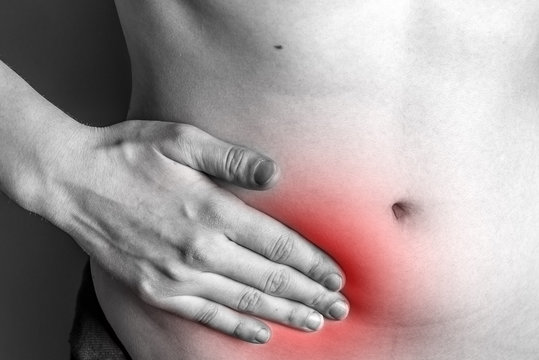Hernias happen when the muscles around your organs get too weak, causing your organs to pop out the muscle wall in the infamous “bulge”.
Hernias will not go away on their own. If you have one, you will need to get hernia surgery. They require surgical treatment in order to heal effectively. The great news is that nearly all Hernias can be surgically treated.

However, if you have already set up your appointment and are looking for ways to soothe the pain in the meantime, please use these helpful tips to make sure your hernia doesn’t ruin your next couple weeks.
Step #1: The obvious stuff
First of all, all medical experts on hernias recommend:
- Avoiding harsh physical activity – any activity that exacerbates the groin and abdomen should be avoided
- Maintaining a healthy weight – obesity is a serious risk factor for hernias not only due to the strain of excess body fat but the increased risk of straining during bowel movements
- Taking OTC pain medication and ice – make sure that your pain medication of choice does not interfere with any medication that you are currently taking
Step #2: Change your routines
Even after hernia surgery, your hernia can come back. This means that you must make crucial lifestyle changes to help prevent a hernia
- Eat fiber – so many hernias are caused by hard stools, you need:
- At least 27 grams of fiber per day for men
- At least 20 grams of fiber per day for women
- Poo properly – doctors recommend pooing with your knees and heels up, and on your tips and toes as you sit. Try to relax!

- Water – 13 cups for men, 9 for women. Include another couple of cups if you work out and avoid sugary drinks
Step #3: Tools that can help you out
Even with a good diet, pain medicine, and proper bowel movements, hernias can hurt so bad you may need more help prior to your surgery. Consider:
- Hernia corset or truss – speak to a doctor first as some trusses may be counter-productive. Trusses or corsets are only for pain management and will not help heal the hernia.
- Home remedies – Castor oil, when applied over the painful area, with a mild hot pack has been known to work wonders. Match with chamomile tea and aloe Vera juice and get some natural health benefits
- Hernia pain stretches – sports doctors recommend:
- Lunge stretch
- Sitting groin stretch
- Hip extension stretch
In short, while Hernias cause nagging truly annoying levels of pain, there are great ways to manage it prior to your surgery
Conclusion
If you or loved however experience:
- vomiting
- Sudden stabbing pain changes
- The sudden growth of the hernia bulge
You may need emergency treatment.
If you have questions or concerns about hernia treatment speak to a medical professional today.


